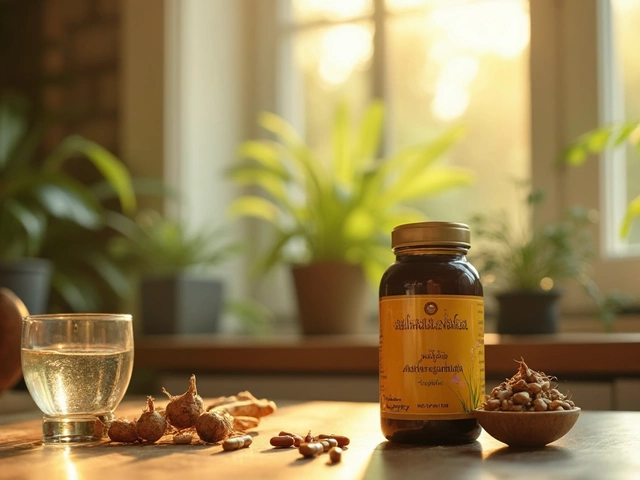Medication: Simple Guides for Safe Use, Choosing the Right Drugs & Supplements
When it comes to meds, most of us just want to feel better without a headache. Whether you’re picking up a prescription, scrolling through online pharmacies, or reaching for an herbal capsule, a few basic rules can keep you safe and get the results you expect.
Prescription Drugs: What to Know Before You Order
First off, not every pill you see online is legit. A trustworthy pharmacy will require a valid prescription, show a clear address, and let you talk to a pharmacist. If a site asks for payment before confirming the prescription, that’s a red flag. Look for certifications like ePharmacy Verified or a link to the national drug regulator.
When you finally have the right prescription, read the label carefully. Pay attention to dosage, timing, and food restrictions. A common mistake is mixing meds with alcohol or certain foods that can change how the drug works. If you’re unsure, a quick call to the pharmacist can clear things up—most will gladly explain potential interactions.
Side effects are another part of the puzzle. Most drugs list mild issues like nausea or drowsiness, but serious reactions are rare and usually show up early. Keep a notebook of anything unusual and call your doctor if symptoms worsen. Remember, stopping a medication abruptly can be risky; always follow the tapering plan if one is given.
Herbal & Ayurvedic Supplements: Benefits and Risks
Herbal supplements feel natural, but “natural” doesn’t automatically mean safe. Ingredients like ashwagandha, turmeric, and ginseng have real benefits, yet they can also interact with prescription drugs. For example, ginseng may raise blood pressure, while turmeric can thin the blood—both matter if you’re on hypertension meds or blood thinners.
Choose brands that test for purity and provide batch numbers. Look for third‑party seals such as USP or NSF. If a product claims to cure serious conditions without any clinical evidence, skip it. Quality matters more than flashy marketing.
Ayurvedic medicines have been used for centuries, but some formulations contain heavy metals or undisclosed synthetic compounds. The Indian Ministry of AYUSH has set safety standards; checking that a product follows those guidelines adds a layer of protection.
Start slow. A common approach is to begin with half the recommended dose for a week, then increase if you tolerate it well. Track how you feel—energy, sleep, digestion—and adjust accordingly. If you notice anything off, stop and consult a healthcare professional.
Bottom line: treat supplements like any other medication. Ask your doctor if they fit into your overall treatment plan, especially if you’re already on prescription drugs.
By staying curious, double‑checking sources, and keeping open communication with your health team, you can navigate the world of medication without unexpected hiccups. Whether it’s a daily pill or a herbal capsule, a little knowledge goes a long way toward better health.





